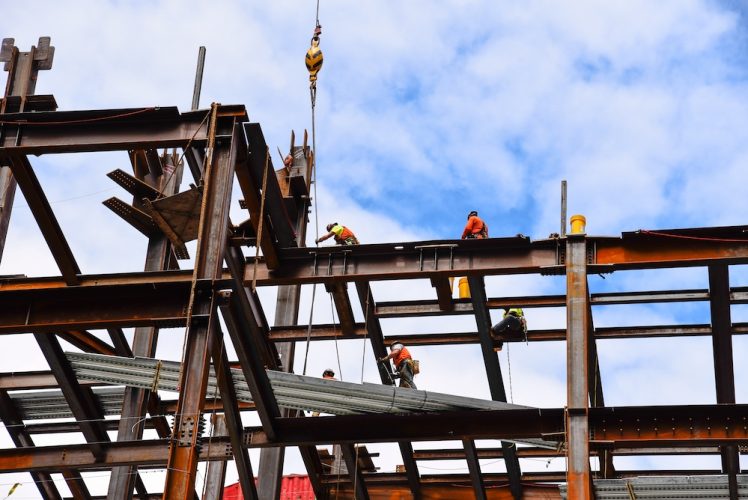A union ironworker’s day-to-day duties can vary depending on the specific type of ironworking they specialize in (such as structural ironworking or reinforcing ironworking), the type of construction projects they work on, and their level of experience. However, here are some common tasks and responsibilities that union ironworkers may perform on a typical day:
- Reading Blueprints and Plans: Ironworkers start their day by reviewing construction plans and blueprints to understand the layout and specifications of the steel structures they will be working on. This includes identifying the locations for columns, beams, and other structural components.
- Material Handling: Ironworkers are responsible for moving and handling steel materials, which can be heavy and require the use of cranes, hoists, and other equipment. They ensure that materials are positioned correctly for installation.
- Welding and Cutting: Depending on the specific job, ironworkers may need to perform welding and cutting tasks to join steel components or make modifications as necessary. This may involve the use of welding machines and cutting torches.
- Structural Assembly: Ironworkers assemble and connect steel columns, beams, girders, and other structural elements according to the project’s design specifications. They use tools and equipment like bolts, rivets, and welding to secure these components in place.
- Rigging: Ironworkers are often responsible for rigging, which involves attaching and securing loads to cranes or hoists to lift and position materials safely. Proper rigging techniques are critical for safety and efficiency.
- Bolting and Fastening: They use tools and equipment to fasten steel components together, ensuring that connections are secure and meet structural requirements.
- Safety Precautions: Safety is a top priority for ironworkers. They continuously assess and mitigate potential hazards on the job site, wear appropriate personal protective equipment (PPE), and follow safety protocols.
- Working at Heights: Many ironworking tasks involve working at elevated heights. Ironworkers are trained to work safely in these conditions, often using safety harnesses and fall protection systems.

